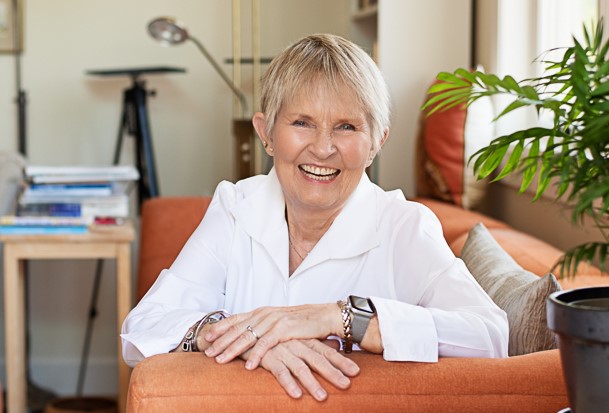Recently I came across a term I knew and had forgotten about: confirmation bias. Familiar? Confirmation bias is our tendency to interpret evidence in support of our existing beliefs. It can be really hard to think of examples of this in our own lives unless something happens to tell us we’re wrong, but an obvious place to look is with politics (especially in the current political climate here in the United States, unfortunately). I realized the other day that I was sifting through the headlines in the newspaper and reading only those that seemed to support one of my opinions. I don’t watch as much news on television as I once did, but when I do, I only tune in to stations that support my beliefs. What information am I missing by doing this—and what biases am I reaffirming? Women Over 55: Are Your Biases Showing?
Confirmation Bias
Confirmation bias surely is active in many instances of sexism. For example, we listen to a strong female political figure and label her as strident, unlikeable, aggressive—when the same behavior from a male politician would make him strong, confident, a real leader. The way we interpret the behavior of each of these politicians is based on our biases about how we think men and women should behave, and we look for the kinds of clues that will confirm our beliefs.
I’ve become very aware of how confirmation bias works for many of us in terms of aging. I was sitting having dinner with a group of friends, and I realized that much of our conversation had to do with aspects of getting older. There was the ubiquitous “senior moment,” and the “lack of energy” to do familiar activities. Both of these may have to do with the body getting older, of course. But twentysomethings also forget things, and they don’t automatically blame it on a “young adult moment.” And everyone gets tired. It may have to do with a lessening of available energy, or it may have to do with not having slept very well the night before.
Consequences
Confirmation bias can have very serious consequences in a healthcare setting. I recently saw a doctor who told me to take my evening walk on a path with benches, so I could sit down when my legs began to hurt. Is that what he would have told a thirty-year-old? I suspect not. I suspect he would have tried to figure out why the young person’s legs hurt when she walked, so he could fix the problem, if possible. His confirmation bias caused him to interpret my age as being the cause of my pain, full stop.
Confirmation bias also can have serious consequences when we constantly interpret what’s happening for and to us on the basis of age. Dr. Becca Levy, a Professor of Epidemiology at Yale School of Public Health and Professor of Psychology at Yale University, has published results of her research in a recent book, Breaking the Age Code: How Your Beliefs About Aging Determine How Long and Well You Live. The title says it all. What Dr. Levy found is that our beliefs about aging don’t only have an impact on our health, they also have an impact on our longevity by as much as seven and a half years. That truly is significant.
Now What?
So, what can we do? We can become very aware of our own biases about aging, and particularly about our own aging. Listen for every time you say something like “senior moment,” so you can stop saying that. Decide to interpret the event in another way (e.g., “I have so much on my mind right now that I’m not very focused”). Get your friends to do the same, and to listen for each other’s biases. Gently point out to someone when you hear them express a bias about their own or someone else’s aging. You might not always get a favorable response, but later they may realize you’ve done them a real favor.
Changing this confirmation bias about aging is important. Not only for our own health and well-being but also for those we love. It’s worth making the effort.
Learn More…
The Prime Spark Membership Community is designed for women 55 (or close) and older to support one another, learn and grow together, and further the mission of Prime Spark. Membership currently is closed. If you’re interested in joining, please send an email to [email protected] and ask to be placed on the waitlist.
We will be beginning another Prime Spark Women’s Story Circle in January. If you’re interested in knowing more about that, please send an email to [email protected]
Sara Hart, PhD, is an author, speaker, and coach. She is leading the charge to change how older women are seen and treated in our society. She is the creator of Prime Spark, a movement to transform how women over 55 take responsibility for their futures. Sara is the author of three books. She also has over forty years experience in leadership development, coaching, and building thinking environments. She was director of training and development for a Fortune 100 company. Sara was also an executive director of the Institute for Women and Technology. To learn more about claiming your power as a senior woman, visit Prime Spark today!


Recent Comments